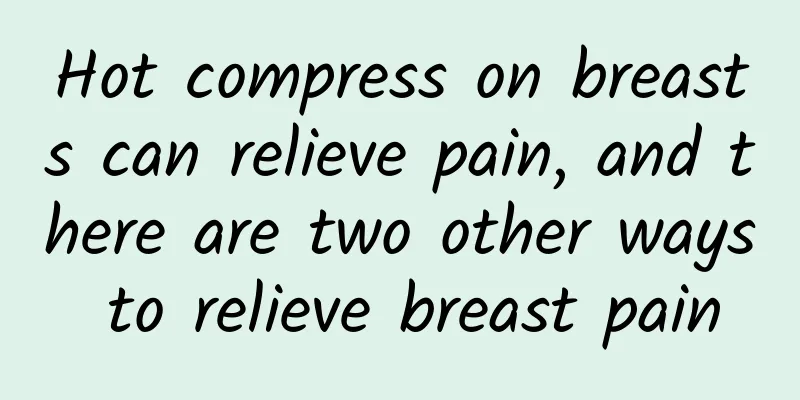Why do I sweat while sleeping?

|
Sweating is a normal reaction of the human body to high temperature, but abnormal sweating is a sign of physical weakness. What is the reason for sweating while sleeping? Sweating while sleeping is called night sweats in traditional Chinese medicine. It can be said that people of all ages may sweat while sleeping. If you sweat because of the hot weather, you don't need to worry about it. Just open the window and reduce the amount of quilts. However, if you sweat too much, you should take it seriously. I don't know if you have this feeling, that is, you sweat too much when you sleep, and you feel weak and uncomfortable after waking up. In fact, sweating is also a standard of physical weakness. This kind of night sweats can also be seen in people with kidney deficiency. So what is the matter with sweating when you sleep? The following is an introduction based on different categories: According to the clinical manifestations of patients with night sweats, they can be divided into three types: mild, moderate and severe. In mild night sweats, sweat easily occurs when the person is in deep sleep, at around 5 a.m., or 1 to 2 hours before waking up. The amount of sweat is small, and the person only feels a little sweat all over the body or certain parts of the body after waking up. No sweat is secreted again after waking up. It is usually not accompanied by any discomfort. For moderate night sweats, most people sweat soon after falling asleep, and their sleeping clothes may even be soaked through. The sweat stops after waking up, and after wiping the sweat off the body, they will not sweat again when they go back to sleep. This type of night sweats causes the patient to feel hot and sweat, and sometimes to feel dry mouth and throat after waking up. In severe night sweats, sweat is easily leaked out. Shortly after falling asleep or just closing your eyes and about to fall asleep, you will sweat a lot. You will wake up after sweating, and the sweat will stop instantly after waking up. Falling back to sleep may cause sweating again. The amount of sweating is large, and the sweat often has a light salty taste, or is mixed with sweat odor. Severe sweating can make the bedding soaked, and one cannot sleep well without changing sleeping clothes several times a night. Some seriously ill patients can make the bedding soaked. When the bedding is thin or a mat is used, sweat can leave sweat marks on the bed board. These patients often have a noticeable feeling of hotness, irritability, dry mouth and tongue after sweating, and like cold water. It may be accompanied by low fever or hot flashes, fever in the five hearts, red cheeks, dizziness, weight loss, fatigue, dark urine, small urine volume, and dry stool. Night sweats can be divided into physiological and pathological types. The incidence of physiological night sweats is especially high in children, which sometimes makes parents very nervous. Therefore, it is necessary to master how to distinguish between physiological and pathological night sweats. Physiological night sweats: In childhood, the skin is very tender, contains more water, has abundant capillaries, has active metabolism, and the autonomic nervous system regulation function is not yet perfect, so it is easy to sweat during activities. If children are too active before going to bed, the metabolism of various organs in the body will be active, which can increase the body's heat production. During sleep, the blood vessels in the skin will dilate, the sweat glands will secrete more, and the child will sweat profusely to help dissipate heat. Secondly, eating before going to bed can enhance gastrointestinal motility, increase gastric juice secretion, and increase sweat gland secretion, which can cause children to sweat more after falling asleep, especially within the first 2 hours of falling asleep. In addition, if the indoor temperature is too high, or the quilt is too thick, or electric blanket is used, it can cause profuse sweating during sleep. Pathological night sweats: Some children sweat mainly in the first half of the night after falling asleep, which is often caused by low blood calcium. Low calcium can easily increase the excitability of the sympathetic nerves, just like turning on the "faucet" of the sweat glands. This situation is particularly common in children with rickets. However, night sweats are not a unique symptom of rickets. A comprehensive analysis should be conducted based on the child's feeding conditions, outdoor activities, etc. Blood calcium, blood phosphorus and wrist bone X-rays should also be checked to determine whether the child has active rickets. Night sweats in children with tuberculosis are characterized by sweating all night long. In addition, there are other symptoms such as flushed face, low fever, weight loss, loss of appetite, and mood changes. Abnormalities can often be found by checking erythrocyte sedimentation rate, anti-tuberculosis antibodies, chest X-ray, etc. One thing to note is that a detailed check of the neck for enlarged lymph nodes is extremely valuable for the diagnosis of tuberculosis in children. After reading the above introduction, you will definitely have a good understanding of why you sweat while sleeping. Sweating while sleeping is not always a bad thing. Sometimes it is physiological and you don’t need to worry too much about it. In many cases, people will only take it seriously when it harms their body. According to your physical condition and age, judge whether night sweats during sleep are normal. If it is abnormal, you must seek timely treatment and do not delay the treatment. |
<<: Elevated alanine aminotransferase
Recommend
What should be used to disinfect the baby's belly button?
Generally speaking, after the baby is born, the d...
The benefits of drinking calendula water
For women, seeing a sea of flowers must make th...
Why does pregnant women's urine smell bad?
After a woman becomes pregnant, the placenta will...
Will red dates tea cause internal heat?
Red dates are a common ingredient in our lives. M...
What medicine can cure coughing up blood quickly?
Coughing up blood is a symptom that is relatively ...
Heat-clearing and dampness-removing soup, drink these three most effective
On weekdays, some people often choose to drink so...
How to Identify Erythrodermic Psoriasis
Disease is something none of us wants to see, bec...
The best time to supplement calcium for four-year-old babies
After learning that their baby is calcium deficie...
Hiccups and shortness of breath after eating
After eating a full meal, hiccups may occur somet...
At night, it hurts and itches down there
It is relatively common for adult women to suffer...
Can ginseng, astragalus, angelica, wolfberry and jujube be eaten together?
In our lives, there are many types of supplements...
If you have stomachache and diarrhea when you wake up in the morning, beware of cancer
I believe that many people have the habit of want...
Can I get vaccinated if I have mild diarrhea?
Babies need to be vaccinated many times after the...
Zhengtian Pills take effect half an hour after taking them
How long it takes for Zhengtian Pills to take eff...
The easiest way to slim your lips, six tips to make you have beautiful lips
Many people are born with thick lips, which may b...









